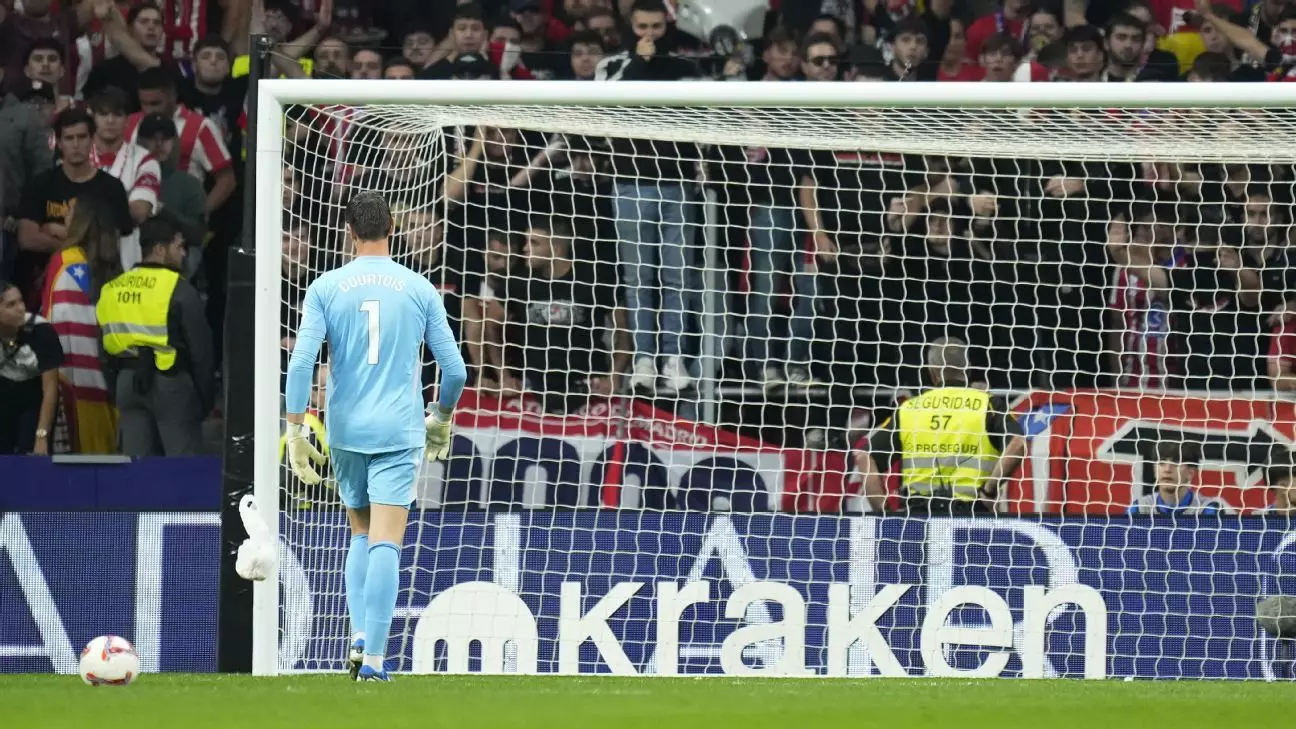The recent Madrid Derby between Atlético Madrid and Real Madrid was marred by unsportsmanlike behavior from a segment of the home crowd, highlighting the ongoing issues of fan misconduct in football. While the match ended in a 1-1 draw and provided its share of excitement on the field, the actions that took place in the stands were overshadowingly disruptive. Objects such as lighters and plastic bottles were hurled onto the pitch towards Real Madrid’s goalkeeper, Thibaut Courtois, leading to a suspension of the game. The incident raises questions about fan comportment and the responsibilities of clubs in maintaining a safe atmosphere during matches.
Responding to this alarming event, Atlético Madrid took decisive action by permanently banning an identified fan involved in the pitch invasion. This swift response reflects the club’s commitment to ensuring that football remains an enjoyable and secure experience for all attendees. The club announced this decision shortly after the derby, asserting their cooperation with local police to identify additional offenders. The repercussions for such unacceptable behavior are crucial, as they set a precedent that sends a strong message regarding the intolerance of violence and disorder in football.
Criticism from Players and Management
Following the incident, the reaction from Atlético Madrid’s management and players, including coach Diego Simeone and captain Koke, indicated a collective frustration. Both criticized Courtois, suggesting that his exuberant celebration following Éder Militão’s goal exacerbated the situation. This narrative highlights a critical perspective within the sport: while emotions run high, the responsibility of players to act as role models and the contrasting reactions from fans must also be examined. Handling emotional triggers in high-stakes games could prevent future incidents of crowd violence.
Fan behavior and its implications extend beyond individual incidents, touching on broader themes of safety and ethics within sports. The response by Atlético Madrid underscores a growing recognition among football clubs of the need for robust policies against violence and the encouragement of stricter regulations. By putting measures in place to expel and identify hooligans, clubs not only protect their players but also work towards ensuring the wellbeing of law-abiding fans.
Moving forward, Atlético Madrid’s commitment to enhancing security at their games should be applauded, but it must not end there. The club’s security protocols need continuous evaluation and improvement, and they must foster a culture that actively discourages hooliganism from the outset. Building an atmosphere of respect and integrity should be the top priority, as the legacy of encounters like the Madrid Derby should not be tainted by instances of violence. Atlético Madrid, as a prominent institution in football, has the power to lead the charge in safeguarding the sport from such unsavory conduct, promoting a safer, more respectful environment for fans and players alike.
